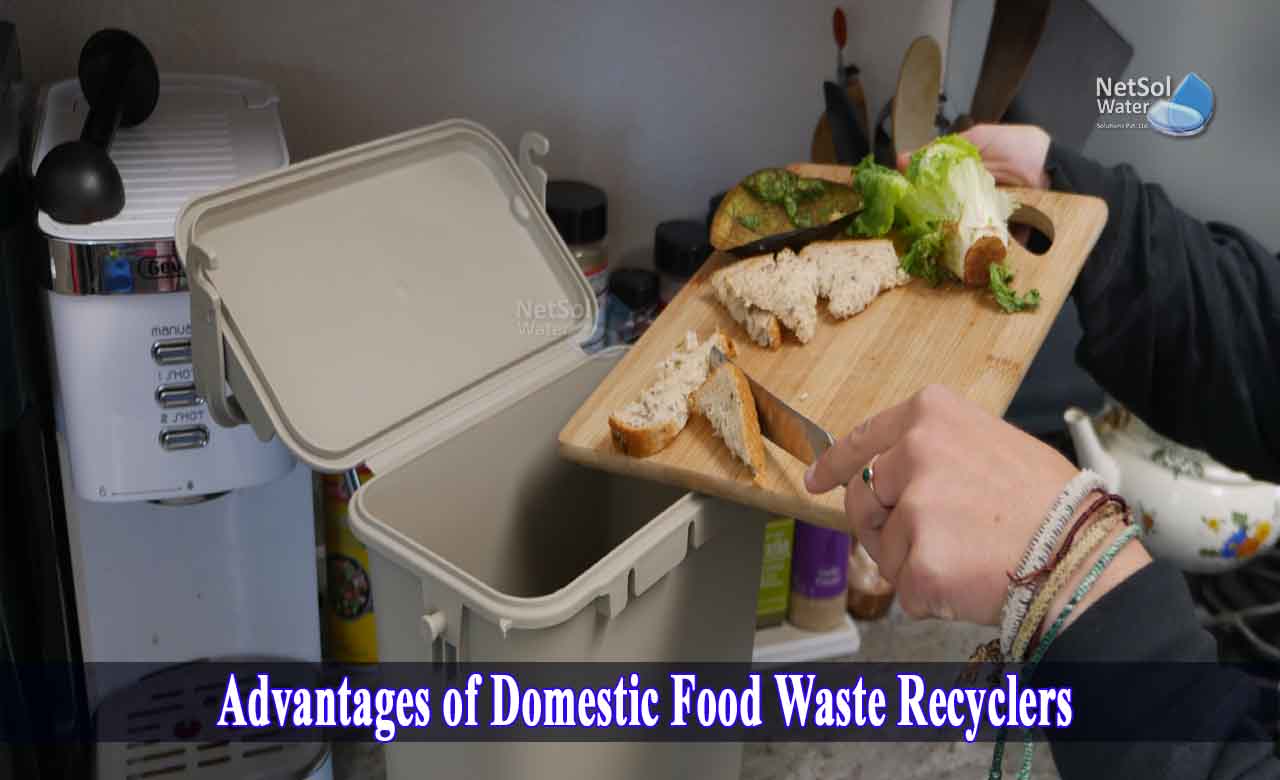What is the Advantages of Domestic Food Waste Recyclers?
Food waste is a global issue with obvious consequences for resource waste, financial loss, and social and environmental challenges and has a huge impact on our future. It can have a big influence on our daily life. The average urban Indian creates 700 grams of solid waste each day. The majority of this ends up in our already overcrowded landfills.
Sources of Food Waste
Hotels, restaurants, canteens, businesses, vegetable markets, supermarkets and apartment buildings all create a significant quantity of food waste. These materials eventually decay in landfills. Anaerobic digestion (AD) is a method used for converting food waste into a sustainable energy source by creating 'biogas,' which may be used to generate power, heat, and car fuel.
The mechanism of anaerobic digestion
Because multiple kinds of microbes are involved in a complicated web of interaction for organic matter breakdown, the process of biogas production via AD has several inherent problems. The microbial ecology is sensitive to even minor changes in environmental circumstances. As a result, a steady atmosphere is required for successful functioning.
Advantages of domestic food waste recyclers
1-It turns organic waste into energy
- Lowers on-site energy expenses
- Lowers waste disposal costs
- Lowers carbon emissions
2-It is a compact food recycler plant
· It is feasible for smaller-scale businesses
· You may build your own waste-to-energy plant
· It decentralizes energy generation
· There is no need to transport waste to a faraway disposal site
3-It is containerized and modular
· It can be delivered to location ready to use
· Easily scaled up or down
· Installed in days rather than months
· It is movable
· Planning and permitting are made easier
4-It is cost-effective
· Reduces waste management
· It qualifies as a carbon-cutting technique
· As a by-product, it produces high-quality fertilizer
5-It is an eco-friendly approach
· It reduces the quantity of food waste in landfills
· It reduces the production of methane
· It lowers the spread of diseases
· It enriches the nutrients for the agricultural sector
Conclusion
Humans put a lot of emphasis on food. It plays a significant role in our daily lives and the economy. There is no disputing that food comes at a price. Land, water, labour, energy and money are all costs associated with food production. As the human population grows, so does the need for food and in order to produce more food, we need more land. Food waste is outpacing food production and we can't afford it, which implies that when we waste food, we really squander all of the resources needed for food production.
The most effective strategy to reduce food waste is to prevent producing it in the first place. While we cannot guarantee that all of our produce is consumed, we can convert food waste into useful resources such as fertilizer, electricity, and a variety of new goods ranging from medications to construction materials.
Netsol Water creates waste-to-energy technology that has won awards. Our food waste recyclers convert organic waste into fertilizer, just where the waste is generated and the energy is needed. It is a modular and scalable technology that is excellent for small and medium-sized locations.



